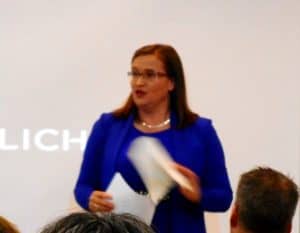Infographics have become a popular format for distributing information about occupational health and safety (OHS) and other topics but they are often seen as a shortcut in consultation. They can be visually engaging but are often too shallow as the writers and designers try to depict safety data in the simplest manner. Terminology also needs to be consistent so that readability is most effective.
Recently Safe Work Australia produced


 In 2018,
In 2018,  One online news site
One online news site On 12 December 2017, part of Australia’s screen and television industry held a forum in Sydney about sexual harassment in the sector and what could be done to reduce this workplace hazard. This initiative occurred a day before an
On 12 December 2017, part of Australia’s screen and television industry held a forum in Sydney about sexual harassment in the sector and what could be done to reduce this workplace hazard. This initiative occurred a day before an  Workplace injury statistics are always less than reality as they are
Workplace injury statistics are always less than reality as they are